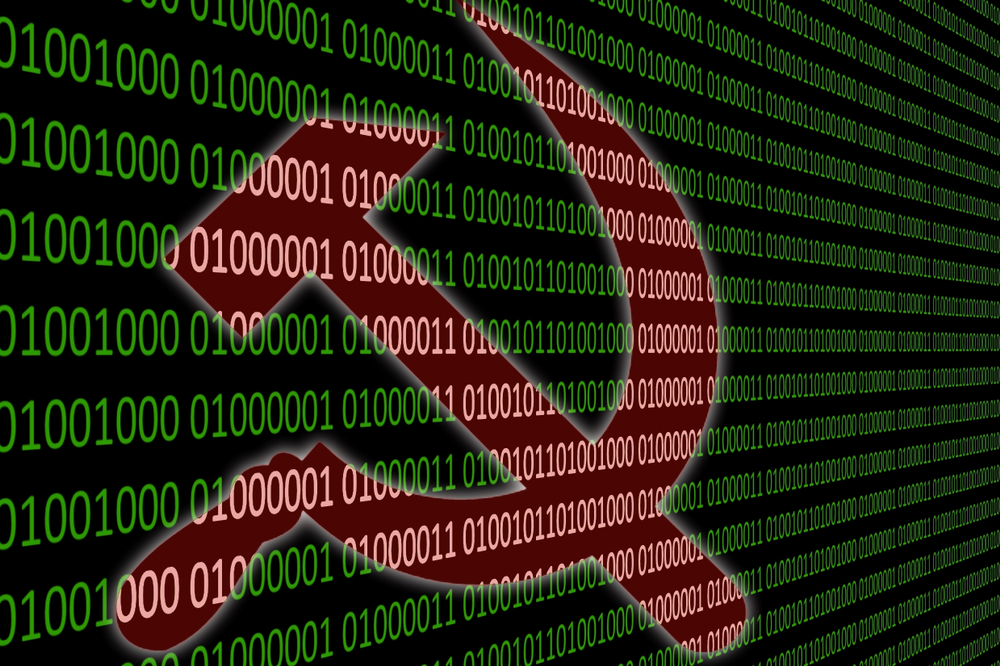Russians have targeted not only U.S. elections, but also American courts, according to national security experts, who say the justice system is being manipulated and exploited as part of a larger effort to diminish faith and trust in the U.S. government.
Court officials across the nation are teaming up with national security experts to address the threats posed by Russians and other foreign meddlers.
These foreign actors are highlighting and amplifying controversial court cases and justice issues in ways that undermine trust in the system. They’re using websites and social media to post false or distorted, negative information about judges and using the court system to obtain information to use against the West.
According to a report authored by national security experts, “The United States’ justice system is under attack as part of a long-term Russian effort to undermine the appeal of democracy and weaken the West. Like elections, the justice system depends on public trust in the legitimacy of its processes and outcomes. And like elections, there is documented evidence that justice systems are consequential targets in our adversaries’ attempts to undermine democracy.”
The report was written by three analysts for the Center for Strategic and International Studies, a nonprofit policy research organization focused on defense and security.
Attack on minor amplified to upset town
In one instance cited by the national security experts, a case involving the sexual assault of a minor in Idaho was blown up on social media, with posts falsely alleging a little girl had been gang raped at knifepoint by Syrian refugees. The posts sought to fan anti-immigrant sentiments in the U.S., suggesting that a “rash of rapes in Europe” by refugees was about to be repeated.
RELATED: Artificial intelligence can infringe on real-life civil liberties
RELATED: Your privacy is disappearing, and you’re helping it along
Because of restrictions on making information public regarding minors, local law enforcement and court officials were slow to respond. The judge and the prosecutor in the case were targeted with threats and the town was roiled.
The national security officials say foreign actors have also used fake Twitter and Facebook accounts to exacerbate racial division in the country, fomenting divisions in discussions about Black Lives Matter vs. Blue Lives Matter, to amplify conclusions that the American justice system is fundamentally racist.
Experts look to boost trust
Court officials are examining ways to shore up the system and foster trust by making the courts transparent and understandable in the face of such attacks.
The Washington-based, bipartisan think tank, the Center for Strategic and International Studies, and the National Center for State Courts, an independent, non-profit court-improvement organization, are working with the American Bar Association to host workshops for state court leaders, encouraging the formation of rapid-response teams and playbooks detailing ways to battle information warfare, both foreign and domestic.
According to the National Center for State Courts, the workshops emphasize focusing on facts when responding to disinformation.
“There is no way you can put the genie back in the bottle after the tsunami has hit the shore,” Mary McQueen, president of the NCSC, said. “What we can do, though, is say, ‘This is how courts work. This is how they evaluate the information. This is a jury trial where your colleagues out in the community are making decisions about this case.’”
Arizona creates task force to counter disinformation

The Arizona Supreme Court created a Task Force on Countering Disinformation after national security specialists told the Conference of Chief Justices “that Russia and possibly other enemy states could be attempting to undermine the stability of the nation by discrediting the judiciary,” according to a recent memo from task force Chairman Aaron Nash.
“The threat,” Nash told Legal Examiner, “is the loss of trust and confidence in the courts, which is part of a bigger issue with less trust and confidence in all government and U.S. institutions.”
The task force recently issued a report that concluded the threat is global and exacerbated by the pandemic, which it said has “provided a fertile landscape for malicious actors to spread disinformation.”
The Arizona task force issued a set of recommendations, including:
- Courts should offer ways the public and the media can contact them to understand the judicial branch and the role of the courts.
- Create a “rapid response team” to address disinformation efforts that target the court system or individuals within it.
- Provide guidance in the state code of judicial conduct for how and when to address such incidents.
- Monitor resources that can quickly identify disinformation campaigns to counter them with accurate information.
“Putin exploits weaknesses of our own making,” said Suzanne Spaulding, who coauthored a report for the Center for Strategic and International Studies called, “Beyond the Ballot: How the Kremlin Works to Undermine the U.S. Justice System.”
Justice system “easy source of division”
“The justice system in the U.S. has legitimate complaints to be made against it and reforms that need to be made,” said CSIS report co-author Arthur Nelson. “It’s an easy source of division, vulnerable to information operations.”
Among the courts’ vulnerabilities, Nelson said, is the fact that they’re “not always set up to communicate with the public, and sometimes their hands are tied to communicate with the public.” The key, he said, is finding ways to communicate, particularly when cases are controversial, without compromising the integrity of the process.
The CSIS report found that Russian disinformation works to create and reinforce negative narratives about the U.S. justice system, including:
- The system tolerates, protects, and covers up crimes committed by immigrants.
- It operationalizes the institutionally racist and corrupt police state.
- The system directly supports and enables corporate corruption.
- It’s a tool of the political elite.
The last narrative was used to undermine Special Counsel Robert Mueller’s investigation into Russian interference in the 2016 presidential election.
The report says Russian attacks on the justice system demonstrate “that disinformation operations go well beyond elections, are adapting, touch all parts of society and show no signs of abating. Russia has signaled its intentions to continue undermining democratic institutions like the justice system.”
No reason to think Russia has stopped
According to the CSIS report, “Via multi-platform disinformation operations, Kremlin-backed operatives work to exacerbate existent divisions within populations and increase overall mistrust and paranoia against democratic institutions. In the process, justice systems are portrayed as corrupt, inept, and hypocritical.”
Spaulding, a senior advisor for Homeland Security in the center’s International Security Program, says the researchers were initially able to find evidence of foreign meddling in the justice system because in 2018 Twitter and Facebook released a trove of 11 million tweets and posts that had been attributed to Russian trolls.
She said that volume of data has not been released since then, making such activity more difficult to study. However, Spaulding told the Legal Examiner, “We have no reason to think (Russia) stopped that activity.”
Another co-author, Devi Nair, said certain Russian-owned media sites, like RT and Sputnik, contain evidence of continuing efforts by the Russians, who are “keeping up with different issues we’re seeing today,” including racial injustice. The Russians are “pushing that narrative hard” that America has two justice systems, depending on one’s race.
Vladimir Putin has three audiences, according to Spaulding. They are his own domestic citizens, whom he wants to convince that Western-style democracy isn’t that great and is just as broken as Russia’s system. He wants to gain influence with international audiences and finally, he wants Americans to believe our system is broken and benefits the rich. He wants us to give up on democracy and disengage, Spaulding said.
Foreign interference “works with a seed of truth”
Experts say the meddling is being carried out in various ways. Sometimes, it’s not clear whether a particular incident was carried out by Russians or is evidence of Americans who are disgruntled with something that happened in court.
Over the past two years, national security experts have seen other countries “adopting Russia’s tactics and getting involved in the information game,” Nelson said. This trend, he added, is “deeply concerning.”
“Part of the challenge is that foreign interference works with a seed of truth,” Nash said. For example, someone might have reason to believe a particular judge is unfair and might write something about it online. A foreign actor could seize on that, add false information to the original post and spread it further across the internet.
One Arizona judge had a fake Facebook page created in his name. The person running the page posted controversial, unethical or racist comments, making them look like they came from the judge. It’s difficult to determine if the page was created by Russians or an American who had a beef with the judge, Nash said.
In southern Arizona, Nash said, someone created a page that had a list of judges and claims that they were pedophiles or involved in human trafficking.
“I think it may be intended to promote a lack of trust, but some people go thinking it’s a valid site looking for insight,” Nash said. Sometimes, people are later surprised that their experience with a judge is not like the online descriptions.
Courts used as a tool
Another report looked at how Russians are using American courts to get information to fuel its efforts, domestically and internationally. That report for the Atlantic Council described how Russia has worked to “turn the U.S. justice system into a tool of Russian government officials.”
“While Russia’s efforts to ‘hack’ the U.S. electoral process and other democratic institutions have been well documented, its efforts to commandeer the U.S. judiciary for nefarious purposes has received far less attention,” the report states. “In using American courts to achieve their ends, the Kremlin and its proxies have identified a number of specific legal claims and procedures that are most susceptible to abuse.”
For example, Russians make use of liberal U.S. court standards regarding the exchange of information, or discovery. Russians have weaponized these practices to get information used in “illegal harassment, extortion and expropriation of private companies and assets.”
The report urges Congress and the Department of Justice to act to “halt this insidious assault on the US judiciary and combat this threat to U.S. democratic institutions.”
Contact Elaine Silvestrini at [email protected]. Follow her on Twitter at @WriterElaineS.












